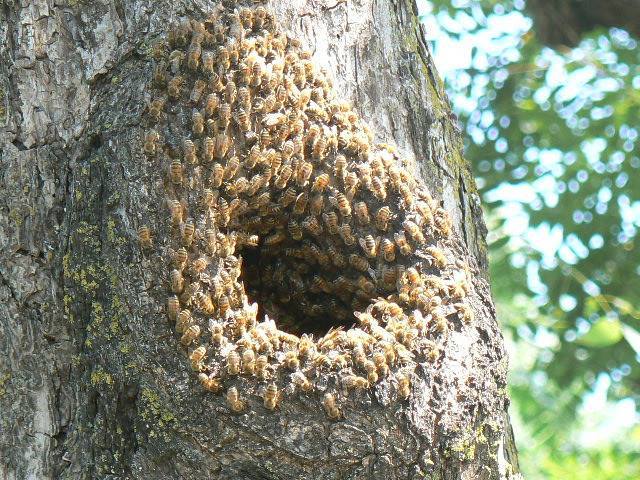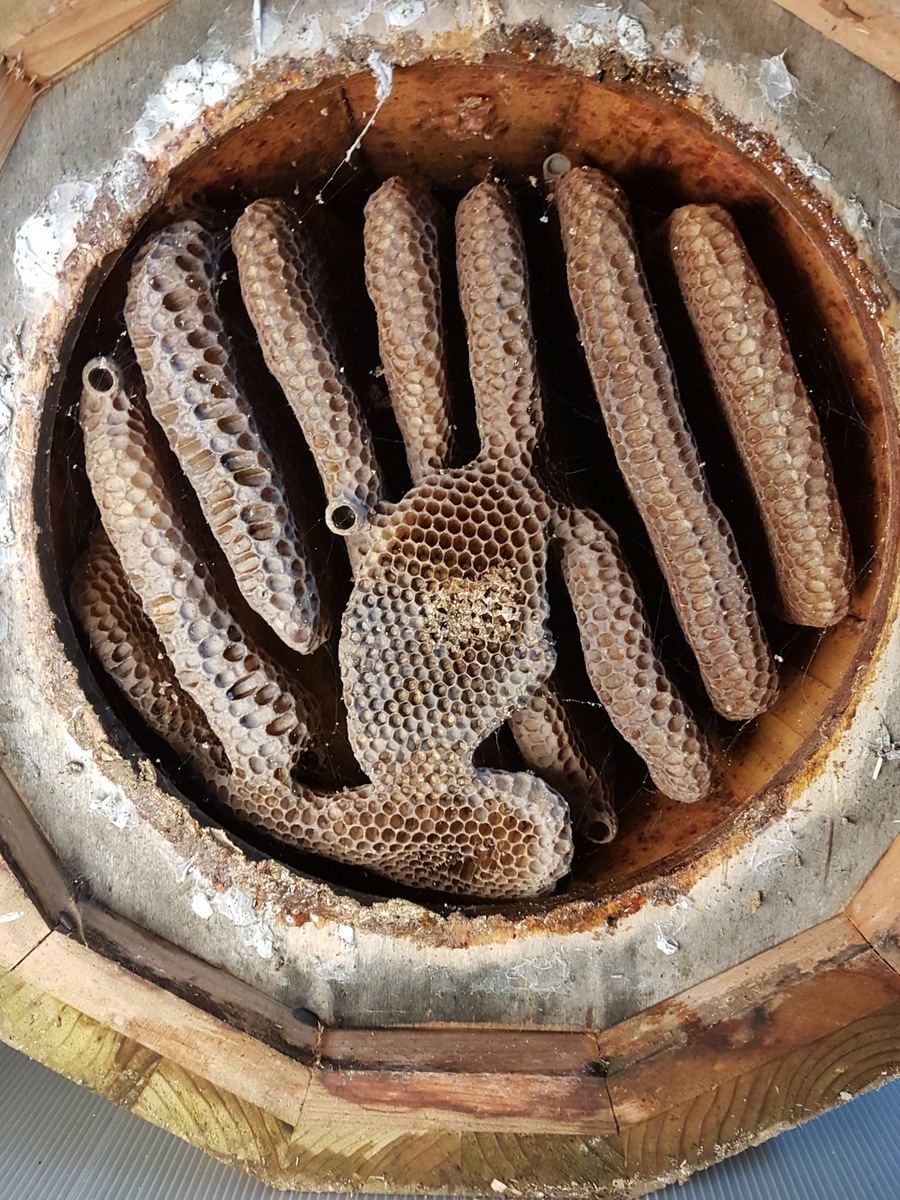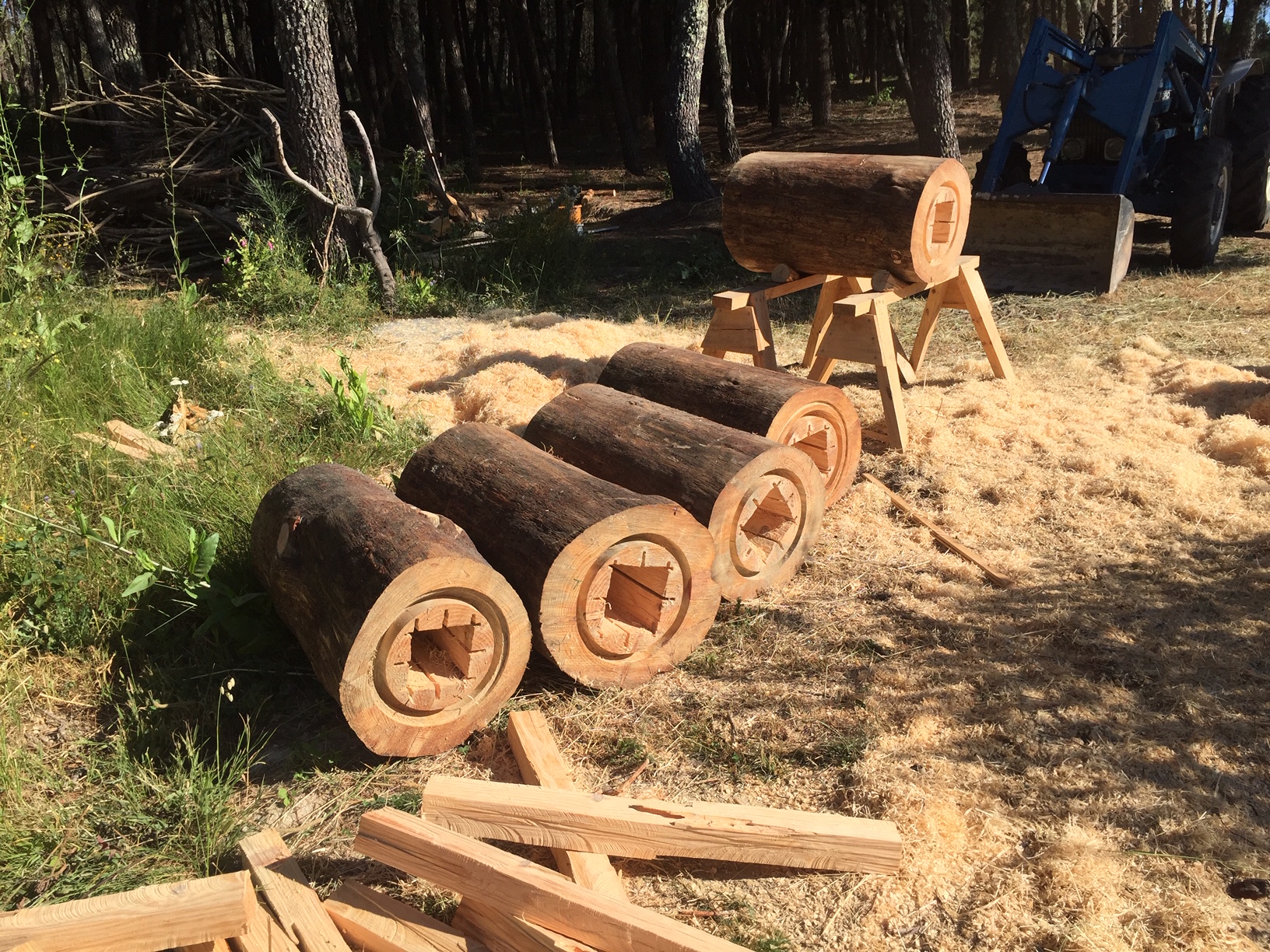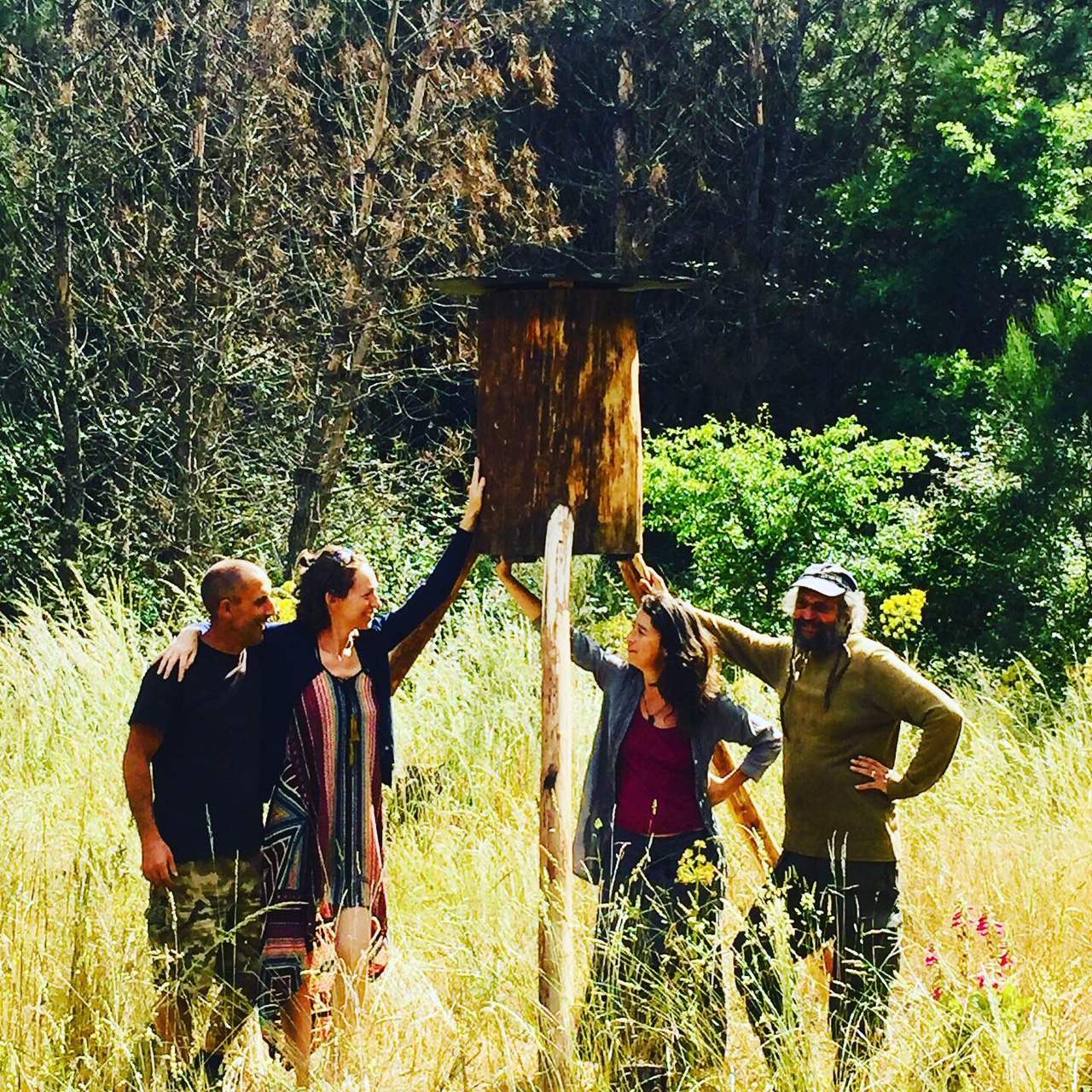Story
Our work is focused both in Portugal and England and we are, alongside other natural beekeepers, part of a ripple around the world putting the health of the honey bee first, not our own gain.
What allows honey bees to thrive?
The honeybee has been in decline for many years due to the degradation of the natural world. Historically, honey bees live in natural cavities such as old hollow trees and on cliff faces.

Over time humans have domesticated the bees taking them from their natural environment and placing them in artificial homes, close to the ground, designed to best suit the needs of the beekeeper rather than the bees.
Combined with the rise of industrial farming practices and the use of pesticides, pollution, loss of foraging spaces and and the removal of natural habitat (the trees), the health of the bees is now in a critical condition. This is now a serious threat to human survival and to the ability of our children to thrive in the future. This situation must be turned around not one day in the future, not tomorrow - but starting now.
In response to this threat, a global movement has arisen to return the bees to homes that mimic tree cavities.
One such home is the log hive. This simple design utilises timber from trees that have come to the end of their life because of wind fall or disease. We have worked with various hives over the last 3 years and since understanding the benefits of log hives, we have placed log hives on regeneration projects in our Portuguese valley and surrounding areas. We are currently in the process of placing more log hives in England.
There are many benefits to such homes:
1) The shape of a hollowed-out log closely replicates a natural tree cavity. This means the bees make their comb to suit them and their health needs, not the beekeeper for extracting honey. Below is a photograph from Matt Somerville, Bee Kind Hives.

2) The walls of a log hive are much thicker than is found in commercial hives, providing greater insulation. This means the bees expend much less energy cooling their home in summer and warming it winter so they can redirect their time to getting stronger in order to face the other challenges we humans bring them.

3) The log hives are elevated on long legs. By being higher up the bees are kept out of the cold damp air which is present at ground level where commercial hives exist. Here bees are left without continual human intervention, yet can still be monitored for health checks. Bees can then maintain a beneficial atmosphere within their home that suits them, not the beekeeper.

When housed in this way, the health of bee colonies has been seen to improve dramatically, showing a significant decrease in disease. Science has also shown the bees in such homes are able to fight off disease without the need for chemical intervention.
OUR WORK CARRIED OUT TO DATE
We purchased the land in Portugal in 2016, Quinta Das Abelhas. It was made up of pine monoculture and degraded grassland. We began by removing the pine monoculture to allow light in to the forest floor, and quickly saw the return of native trees such as oak and chestnut through dormant seed in the ground.
Through interventions such as composting, mulching, water retention strategies, and seeding, we witnessed a significant increase in the number and diversity of wild flowers and plant life. This has led to seeing many more pollinators such as butterflies and bees. In turn, the bird life is increasing and this year we have witnessed more birds breeding on our land. For the first time we have seen the exotic hoopoe rearing their young and bat breeding on the land.
SUPPORT FOR NEXT PHASE
Our next phase of work will consist of felling 250 pine trees that are either dead or dying. This will allow even more light to encourage the small self-seeded native trees to flourish, and more dormant seeds to come up.
Then, we will be planting an extra 500 trees that have been selected for their suitability to the climate in our region and that require pollinating insects. This will provide the extra all year round forage needed for the bees, butterflies, bats and birds found on our land.
We will be making and installing log hives to further the network of hives we began this year. They will be placed on land that is being rewilded across Portugal and England, as well as in suitable gardens in peoples homes.
To further accelerate the introduction of log hives we will be running workshops to teach others how to make them and also share the theory of hands off-bee husbandry.
Our aim is to place 50 hives ready for the swarming season in Spring 2020.
HOW THE MONEY WILL BE SPENT
We will invest the capital you provide in volunteer facilities so we can bring in extra hands for the reforestation and log hive making, buying trees for planting, equipment for making log hives and running the hive-making workshops, fuel. and our time so we can focus fully on the land regeneration and bee work.
If you can support us to help the honey bees we would be so grateful. The names of everyone who donates will be engraved on a wall of gratitude on the land, and you are invited to create with us and be part of the regeneration work .
Any amount you can contribute is welcome, and if you are willing to share this campaign with family and friends, that would be wonderful too as we want to raise awareness as much as we want to raise funds for this important work.
To the return of human health where we once again we protect the other species that keep us alive.
Much gratitude and love. Deborah & Phil
For more information and to follow what we do you can visit our Website , Instagram or Facebook.